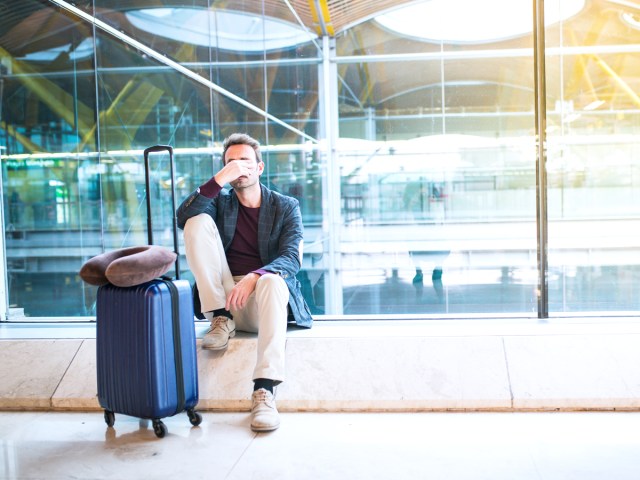Whether you’re planning the trip of a lifetime or a last-minute getaway, a well-planned budget is key to a smooth travel experience. However, sticking to a budget is often the most tedious and, let’s face it, least fun aspect of trip planning. With a bit of patience and some savvy strategizing, though, budgeting can be a breeze — allowing you to get more out of your vacation than you ever thought possible. Here’s how to master the art of vacation budgeting by making every dollar count.
Set a Maximum Budget

Everyone’s vacation plan looks different, but first, it’s essential to establish the maximum amount you’re willing to spend no matter where you’re jetting off to. If you’re traveling with others — whether with a partner, family, or friends — have a candid conversation about the budget early on to understand everyone’s financial boundaries. Consider other upcoming commitments, such as weddings, trips, or major life expenses. Once you’ve decided on a total, work backward, prioritizing the most essential elements of your trip first.
Create a Vacation Fund

If you don’t yet have a vacation fund, now’s the time to start one. Establish a set amount to contribute each month toward your trip to reach your target. To get an accurate idea of how much you need to save, use a tool like Budget Your Trip to understand the average daily costs for travelers in your chosen destination. After you’ve decided on a destination and a maximum budget, compile a spreadsheet to help keep track of expenses and prevent any unwelcome surprises.
Maximize Savings With Rewards and Loyalty Programs

Before you begin booking, take inventory of all the loyalty programs and rewards memberships you belong to. Airline miles, hotel rewards, and credit card perks and points can help reduce vacation costs. If you’re a member of AAA, AARP, or other organizations, you may be eligible for special discounts on hotels, amenities, or attractions, from rental cars to admission to Walt Disney World.
Government and military personnel, teachers, and other public service workers can often find additional discounts. This is your opportunity to stretch your travel dollars further, as these savings can add up fast.
Start With the Essentials

After figuring out your total budget, your next priority when trip planning should be practical essentials — with one exception. If an event or attraction will be the highlight of your trip, put it at the top of your expense list. Whether it’s a guided tour of Machu Picchu, tickets to a sold-out concert, or a gourmet dining experience, it should be the top budget consideration if it’s the sole purpose of your vacation.
Next are the essentials, including transportation, lodging, meals, and gratuities. Planning ahead will save you money in the long run, so research these big-ticket items first.
Flights
Airfare often takes up a considerable chunk of the budget. Use tools like Google Flights, Kayak, or Skyscanner to get a baseline of what it costs to fly to your destination and to compare prices across different airlines and travel dates. Don’t forget to include rental car, taxi, or public transportation costs. According to Investopedia, train and bus tickets are almost always less expensive when booked in advance, as far out as 12 weeks before travel.
Accommodation
Lodging should be your next consideration. Remember, it’s not just about the nightly rate — take taxes and additional fees into account, too. (Fortunately, the U.S. recently passed new rules on banning hidden hotel fees, requiring hotels to display up-front all-in pricing.) A search on Google or a third-party site like Booking.com can give you a good idea of the average lodging prices at your destination. While third-party sites offer discounts and refundable rates, sometimes booking directly through a hotel’s website can yield the best deals.
Dining
Finally, what’s a vacation without good food? This expense will vary significantly depending on where you’re traveling. Whether you’re cooking your own meals in a cozy cabin or enjoying fine dining in the city, having a rough estimate of meal costs can help you stick to your budget. Websites like Numbeo give detailed breakdowns of average grocery prices and restaurant costs in cities worldwide, so you can plan accordingly. Don’t forget to account for gratuities, especially if tipping is customary in the country you’re visiting.
Add the Fun

Guided tours, local experiences, and exciting excursions all help make a trip memorable. But whether you’re wine tasting in the Mediterranean or hiking in a new national park, you need to add that cost to your budget.
For attractions and events, research whether you can book ahead of your trip — not only do popular attractions tend to sell out, but you also might save some money. And don’t forget about souvenirs, either. If you know of a local specialty you want to bring home, add that price to your list. The cost of getting these memories home can sneak up on you, so have room in your budget for shipping or purchasing an extra suitcase if you run out of space.
Prepare for the Unexpected

While it’s not always top of mind, having an emergency fund is essential — especially when traveling internationally. Medical emergencies, lost cellphones, and itinerary changes can quickly derail your vacation plans and create extra costs. To avoid some of these budget-busting expenses, double-check that you’ve packed all the expensive essentials, from prescriptions to chargers.
At the end of the day, by setting a realistic budget, maximizing discounts, and prioritizing the essentials, you’ll make your trip not only affordable and seamless but also unforgettable.
Featured image credit: andresr/ E+ via Getty Images
More from our network
Daily Passport is part of Inbox Studio, an email-first media company. *Indicates a third-party property.
















